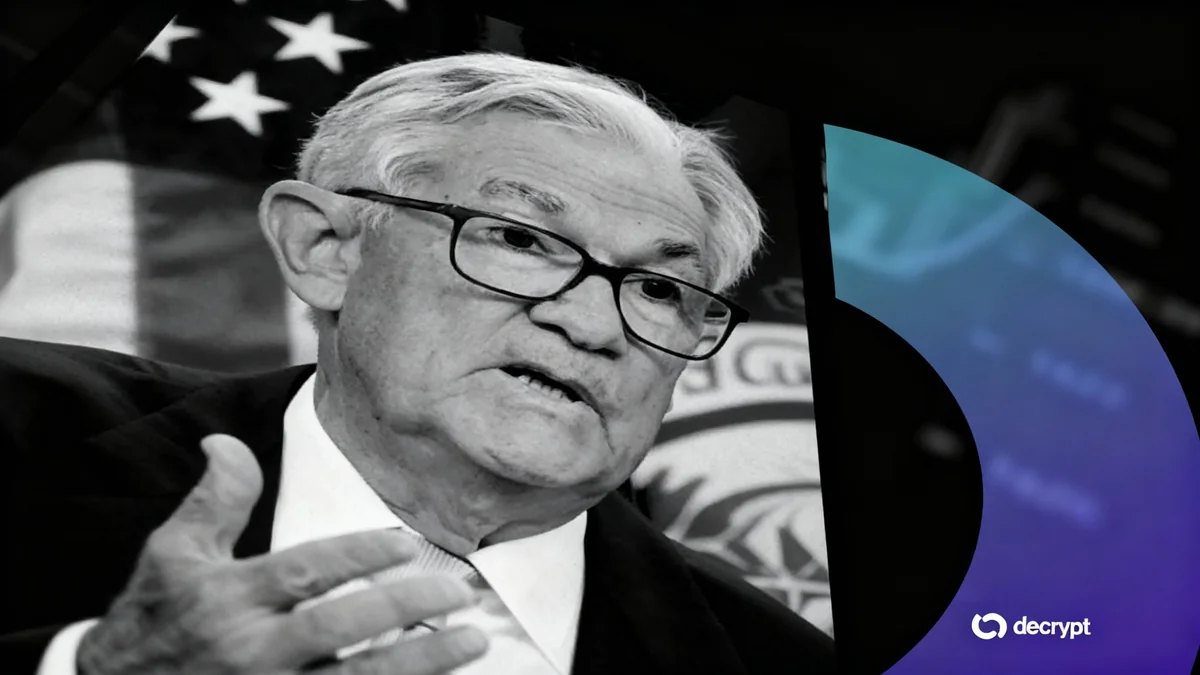MicroStrategy's Michael Saylor suggests that as more large institutions invest in Bitcoin, the cryptocurrency's well-known volatility could significantly decrease. He described this potential shift as a natural phase in Bitcoin's evolution into a stable store of value, a change required to attract large-scale institutional capital.
Speaking on the Coin Stories podcast, Saylor explained that the high volatility seen in Bitcoin's early years was a necessary part of its growth. However, as major financial players enter the market, they will demand a more stable environment, which could transform Bitcoin from a high-risk, high-reward asset into what he termed a "boring" but reliable investment.
Key Takeaways
- Michael Saylor predicts institutional adoption will reduce Bitcoin's volatility, making it a more stable, "boring" asset.
- Corporate Bitcoin holdings have surpassed 1 million BTC, valued at over $118 billion, representing about 5% of the total circulating supply.
- MicroStrategy has slowed its purchasing pace, but overall corporate accumulation continues to grow as new companies enter the market.
- Saylor is pioneering Bitcoin-backed financial products, such as preferred stocks, to offer high yields and attract traditional investors.
- Despite institutional interest, concerns remain about corporate concentration of Bitcoin and its potential market impact.
A Shift in Corporate Bitcoin Strategy
Recent data indicates a significant change in how corporations are accumulating Bitcoin. While the total amount of Bitcoin held in corporate treasuries has reached a new high of 1.011 million BTC, the pace and method of acquisition have evolved.
In 2024, aggressive buying sprees were common. MicroStrategy, for example, purchased 134,000 BTC in November 2024 alone. However, this trend has shifted. By August 2025, the company's monthly purchases had dropped to just 3,700 BTC. This slowdown has reduced MicroStrategy's dominance in corporate Bitcoin holdings from 76% to 64%.
Corporate Holdings Continue to Rise
Despite MicroStrategy's reduced pace, public companies added 415,000 BTC to their treasuries in 2025, already surpassing the 325,000 BTC acquired during the entirety of 2024. This growth is driven by new entrants, with 28 new firms adding 140,000 BTC in July and August alone.
Saylor addressed the current selling pressure in the market, attributing it not to a loss of faith but to early crypto investors and employees diversifying their assets. He compared the situation to startup employees selling vested stock options to finance personal expenses while still believing in their company's long-term success.
Valuation Challenges for Bitcoin-Holding Companies
As more companies add Bitcoin to their balance sheets, the market is facing challenges in accurately valuing these firms. Traditional financial metrics are often inadequate for assessing companies whose primary asset is a volatile cryptocurrency.
A recent report highlighted that a quarter of public companies with Bitcoin treasuries are now trading below their net asset value (NAV). This means their market capitalization is less than the value of the Bitcoin they hold. The average NAV multiple for these companies has decreased from 3.76 in April to 2.8.
For instance, some companies like NAKA have seen their market value fall by as much as 96% from their peak, trading at just 0.7 times their NAV. Other firms, including Twenty One and Semler Scientific, also trade at a discount to their Bitcoin holdings.
What is Net Asset Value (NAV)?
Net Asset Value represents the total value of a company's assets minus its liabilities. For a Bitcoin treasury company, a significant portion of its assets is its Bitcoin holdings. When a company's stock trades below its NAV, it suggests investors are valuing the company at less than the sum of its parts.
Innovating with Bitcoin-Backed Financial Products
During the podcast, Saylor detailed his strategy to integrate Bitcoin into traditional finance through innovative credit instruments. He identified a weakness in conventional fixed-income markets, which he described as "yield starved," citing negative interest rates from some Swiss banks and low yields on European corporate bonds that fail to outpace monetary inflation.
"We are in a yield-starved environment where traditional credit markets offer returns that are often outpaced by inflation. Bitcoin provides a foundation for creating superior financial instruments."
To address this, MicroStrategy has launched a series of Bitcoin-backed preferred stock instruments, each designed for different types of investors:
- Strike: Offers an 8% dividend with the option to convert to common stock.
- Strife: Provides a 10% perpetual yield with senior liquidation preferences.
- Stride: Targets investors with a higher risk tolerance, offering a 12.7% effective yield by removing certain penalty clauses.
- Stretch: A newer instrument designed to function like a treasury preferred stock, with monthly variable dividends to minimize duration risk and volatility.
This financial structure allows MicroStrategy to fund its dividend payments by raising capital in equity markets rather than selling its Bitcoin. The company raises approximately $20 billion annually, using about $600 million for dividends and deploying the rest to acquire more Bitcoin.
The 'Digital Gold Rush' and Institutional Education
Saylor envisions the period between 2025 and 2035 as a "digital gold rush." He believes this decade will be characterized by widespread experimentation with business models, the creation of new financial products, and significant wealth generation built on the Bitcoin network.
He compared the current state of Bitcoin to the petroleum industry in the 1870s, when the full potential of crude oil was not yet understood. Just as crude oil derivatives like kerosene and gasoline transformed industries, Saylor believes Bitcoin-based financial services will reshape the global economy.
However, this transition requires patience and education. According to Saylor, many institutional investors still need fundamental education about Bitcoin's properties and potential. MicroStrategy is actively working to educate credit rating agencies with the goal of becoming the first investment-grade Bitcoin treasury company.
Retail Investors Remain a Key Force
While institutional adoption is a major focus, retail participation remains a cornerstone of the Bitcoin market. Approximately 75% of shares in Bitcoin ETFs are held by non-institutional investors. These retail flows provide crucial market support, especially during periods when institutional demand slows.
As institutions become more involved, the market dynamics will continue to evolve. Analysts have raised concerns that a high concentration of Bitcoin in corporate hands could reduce market liquidity and potentially increase volatility if a major holder decides to sell. Saylor's vision of a less volatile, "boring" Bitcoin depends on these institutions adopting a long-term holding strategy, a transition that he views as essential for establishing Bitcoin as a primary global financial asset.





